If you're thinking about starting a new diet plan, it's important to remember that it will require a significant change in your lifestyle and eating habits. But don't worry; you don't need to sacrifice everything or completely overhaul your life to achieve results. With the right approach, following a proper diet plan can offer numerous health benefits, from speeding up weight loss to helping you build muscle.
It also helps in overcoming various health issues like the risk of heart disease and obesity. The key is to start small and make gradual changes that are easy to implement and stick with.
To help you stay motivated and avoid the disappointment of quitting before seeing results, we've compiled a list of 8 essential things you need to know before starting a diet plan.
From setting realistic goals to understanding what to expect and avoid, these tips will guide you toward success and help you achieve the best possible outcomes from your new diet plan. So, buckle up, and let's start this exciting journey toward a healthier you!
If you are just interested in just getting started on healthy eating this is a great video to get started!
Things You Need to Know When Starting a New Diet Plan
Discover the essential tips you need to know before starting a new diet plan with our guide to the 8 key things to remember. Whether you're new to the world of diets or a seasoned veteran, these insights will help you set yourself up for success and make informed decisions on your health journey.
1. Start With Realistic Goals

The 1st step to a successful diet is to set realistic goals. Making the goal too bombastic can discourage you while setting reasonable and achievable goals will have the exact opposite effect.
Ask yourself what you hope to accomplish from this new diet plan and how you will measure your success. Are you aiming for weight loss or increasing energy? Establishing measurable goals will help guide both short-term and long-term successes, helping to motivate you along the way.
Related Article: Diet or Exercise: Which Is Best for Long-Term Health & Weight Loss?
2. Know Your Eating Habits

Knowing your eating habits can be a real eye-opener. Take a few minutes of your day to assess your current dietary behaviours-are you snacking all through the evening, skipping breakfast, or reaching out for unhealthy processed food? A thoughtful analysis will identify what needs to change and what should stay the same.
Moreover, it's important to remember that establishing healthy eating habits involves more than simply changing the type of food you take-the quality of each meal matters too. You will benefit more physically and mentally by incorporating mindful eating habits into your routine.
3. Consider Health Risks

When starting a new diet or lifestyle plan, it's essential to consider your health risks. Are you healthy enough to begin a vigorous diet program requiring frequent workouts? Are there any underlying issues that certain food items or exercises could aggravate? Before jumping into a new nutrition routine, talk to your doctor and ensure your body is mentally and physically prepared.
Your health is more important than any dietary goal; getting quality sleep, following a balanced meal plan, and exercising are all essential for maintaining good health. With smart assessments and mindful planning, you can achieve any fitness goal-safely.
4. Research Different Diets
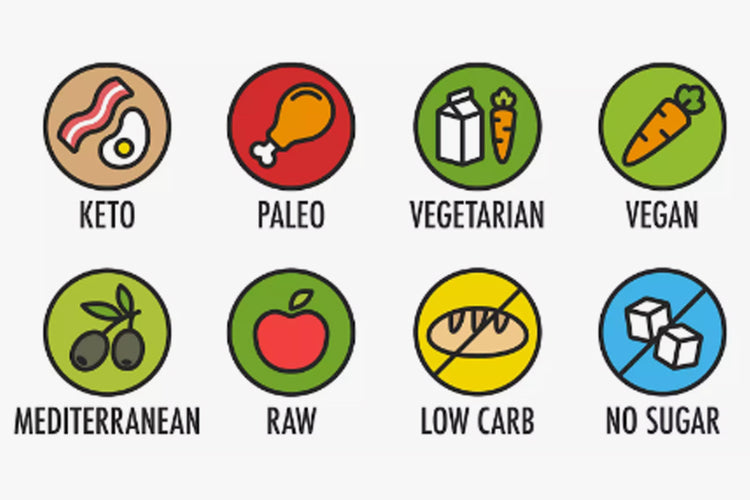
With so many diets taking the spotlight nowadays, it can take time to discern which choice is best for your body. To make an informed decision about which diet is most suitable for you, taking the time to research the various options is invaluable. Investigate different diets carefully, from Whole30's strict limits on foods to the balanced, mindful approach of Intuitive Eating.
You can determine a nutritional plan that works with your lifestyle. An educated, data-driven decision will set you up to achieve desired results and keep you safe during your journey. So roll up your sleeves and get researching.
5. Make a Grocery List
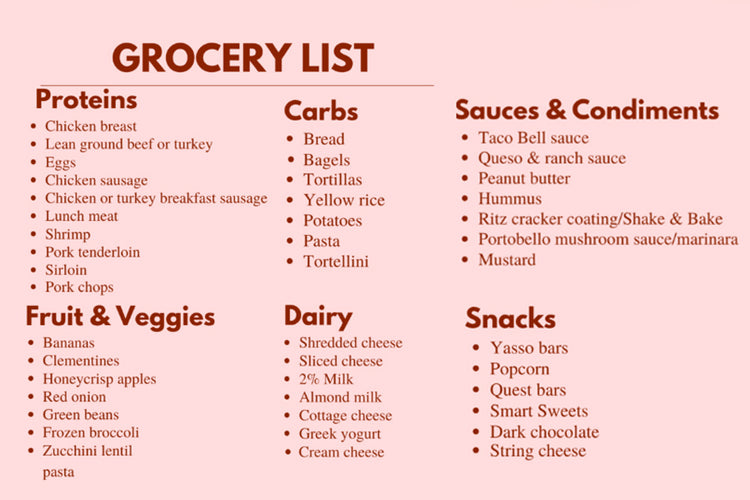
Having a grocery list ready when you go to the store can help make the diet process easier. Take a few minutes, think through what you'll need, and jot it down on paper or your phone. To start feeding your body right, focus on healthy, vegan, low-sugar, and nutrient-dense items.
Organic vegetables, lean proteins, and healthy fats should become staples in your list-avoiding processed foods with artificial ingredients is critical. An organized grocery list before heading out to the store sets you up for success on your health journey
6. Get Creative With Healthier Recipes

Trying to make healthier food choices when you start a diet can feel overwhelming, but you can make it enjoyable with creativity. Start thinking of meals requiring minimal or no cooking-try mason jar salads or veggie-packed smoothies. If you are cooking, keep things interesting by trying out new recipes using different combinations of ingredients or even exploring cuisines from around the world.
For example, look for Mexican-inspired dishes like fajitas that blend flavorful ingredients with heartier ones like beans and brown rice. Remember simple snacks-try making your healthy trail mix with nuts and dried fruit instead of high-calorie treats! You can make eating healthy more fun with just a dose of creativity. Incorporating supplements, such as whey protein powder or Vitamin C+, into your diet can help you stay healthy and avoid unhealthy alternatives.
We offer a wide variety of recipes on our site that are extremely healthy and can fit any diet you may decide to venture on! Check it out at this link Healthy Recipes
7. Meal Prep
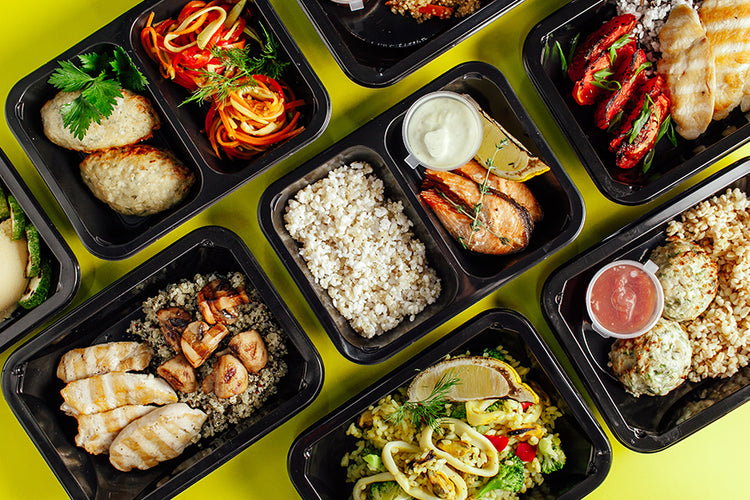
Food prepping is the key to staying organized and thriving on a new diet. By planning nutritious meals, you can ensure that your eating habits reinforce a healthy lifestyle. Meal prepping allows you to create different menus for the week, so fewer temptations and less effort are required when making and consuming healthier dishes.
Not only does this save money, but it also saves time and energy by avoiding constant meal decisions when hunger strikes. Time-strapped individuals can also benefit from batch cooking as they can access several days' worth of food at once that meets specific dietary requirements.
8. Monitor and Track Progress

If you want to reach your goals fast and effectively, keeping track of your progress when starting a new diet is essential. Journaling your meal choices and physical activities is an excellent way to stay on track.
Another great tool is taking frequent photos before, during, and after the diet - with regular check-ins, you'll have a tangible record of how far your body has come in just a few short weeks! Monitoring and tracking your progress keeps you motivated as you strive to reach your weight loss goal.
Related Article: The IIFYM & Flexible Dieting Diet Plan That You Need
Challenges of Starting a New Diet: Overcoming Obstacles on the Road to Success
Embarking on a new diet plan can be a thrilling and rewarding experience, but it's essential to understand that the journey can also be fraught with challenges. To succeed, you need to be ready to face and overcome obstacles along the way. Here are some of the most common challenges of starting a new diet and some tips on overcoming them.
Dealing With Cravings
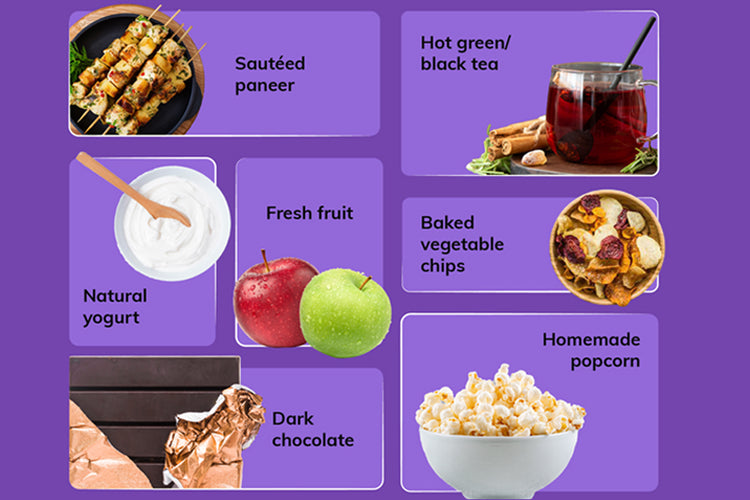
Cravings can be one of the biggest hurdles of starting a new diet. You may find yourself longing for your old favourite foods, mainly if you've been used to consuming a lot of sugar, salt, and processed foods.
The key to overcoming cravings is to be prepared. Keep healthy snacks on hand, such as nuts, seeds, and fruits, to satisfy your hunger pangs without breaking your diet plan. Also, be mindful of your triggers, and avoid situations where you will likely be tempted to cheat.
Social Pressures

Another challenge of starting a new diet is dealing with social pressures. You may find that your friends and family members are not supportive of your new eating habits or that they actively try to sabotage your efforts.
To overcome this challenge, it's essential to communicate with your loved ones and explain why you're making these changes. You can also find like-minded individuals who share your goals and can offer support and encouragement.
Lack of Time

One of the most common reasons for not sticking to a diet plan is their need for more time. Finding the time to plan and prepare healthy meals can be challenging between work, family obligations, and other responsibilities.
Try meal prepping on the weekends to have healthy meals ready throughout the week. You can also look for healthy meal delivery services that can provide you with nutritious meals without the hassle of cooking.
Boredom

Eating the same foods over and over again can get boring, which can make it difficult to stick to your diet plan. To overcome this challenge, try experimenting with new ingredients and flavours. Look for healthy and yummy recipes online or in cookbooks, and try new foods you've never tried. This can help you stay dedicated and engaged and make your diet plan less like a chore.
Unrealistic Expectations
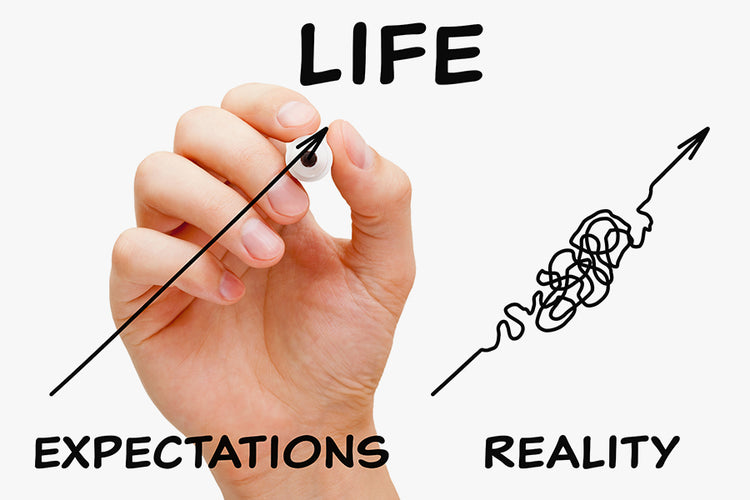
Finally, one of the biggest challenges of starting a new diet is having unrealistic expectations. It's important to remember that healthy weight loss is a gradual process with no quick fixes. If you set unrealistic goals for yourself, you may become discouraged when you don't see immediate results. Instead, focus on making small, sustainable changes to your diet and lifestyle, and celebrate your progress.
FAQs
1. What is the worst day to start a diet?
There is no "worst" day to start a diet. Choosing a day that works for you and your schedule is essential so that you can commit to your new plan.
2. What is a beginner diet plan for weight loss?
A beginner diet plan for weight loss typically involves eating whole, nutrient-dense foods such as fruits, vegetables, lean protein, and whole grains. Reducing processed foods, added sugars, and saturated fats in your diet is essential.
3. What is the best time to start a diet?
The best time to start a diet is when you feel motivated and ready to change your lifestyle. No specific time is better than others, but it's essential to have a diet plan in place before starting.
4. How to start a diet to lose belly fat?>
To start a diet to lose belly fat, focus on lowering your calorie intake, increasing your protein intake, and eating whole, nutrient-dense foods. Also, incorporate exercise into your routine, as it can help burn calories and boost metabolism. But remember there is no way to spot reduce fat.
5. I'm starting a diet tomorrow, what should I do to prepare?
To prepare for starting a diet tomorrow, make a meal plan, go grocery shopping for healthy foods, and remove any tempting, unhealthy foods from your home. It's also important to set realistic goals and be prepared for challenges.
Conclusion
So there you have it - 8 essential things to remember when starting a new diet plan. Remember, embarking on a new health journey can be a beautiful and rewarding experience. But it can also be tricky with so much misinformation out there.
That's why it's essential to start with realistic goals, know your eating habits, consider your health risks, research different diets, make a grocery list, get creative with healthier recipes, do meal prep, and monitor and track your progress. With these tips, you'll be on your way to achieving your health goals and becoming the best version of yourself. So don't wait any longer - start your journey to better health today!








